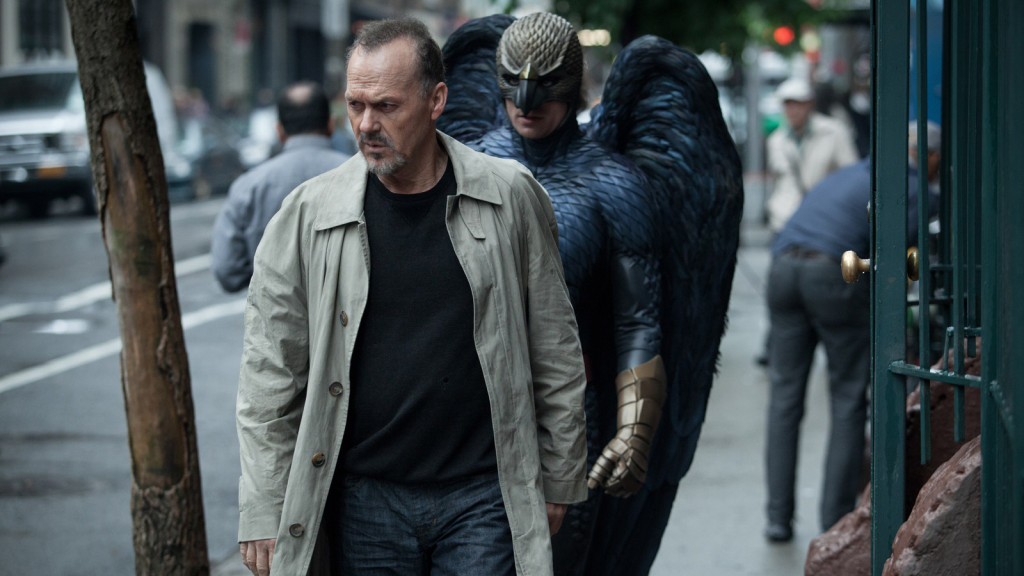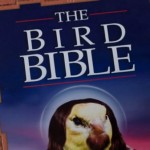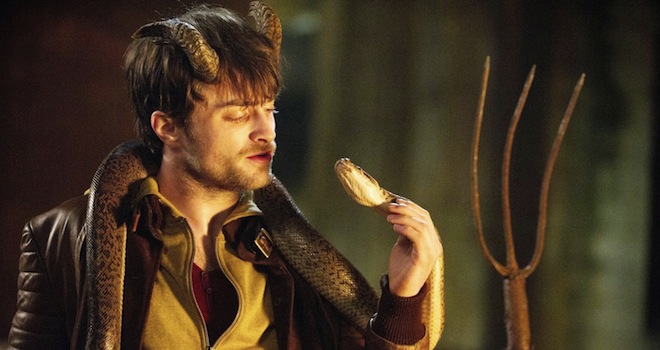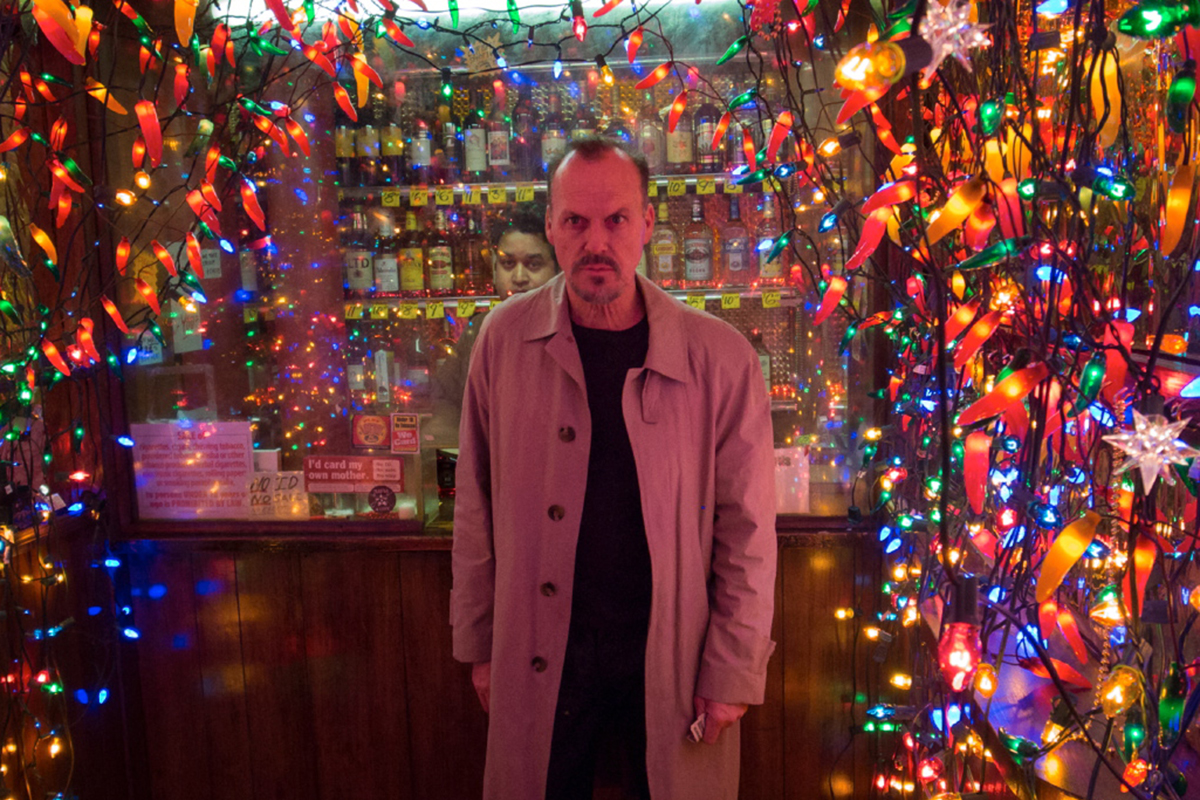“A thing is a thing. Not what is written of that thing.”
We’re in the age of superheroes. More specifically, superhero films. Hell, the immediate future is jam packed with them. Birdman, directed by Alejandro Gonzalez Inarritu (21 Grams, Babel), is the least likely superhero film you could expect to see.
Michael Keaton (Beetlejuice, Jackie Brown) plays Riggan Thomson, an actor who once played the eponymous hero in three Birdman blockbuster films, before refusing a fourth and leaving the franchise. Now a washed up has-been, Riggan attempts to revive his career by directing, writing, and starring in a broadway adaptation of Raymond Carver’s “What We Talk About When We Talk About Love”. This would be a great idea for Riggan and his ever dwindling career, if it weren’t for the fact that a mental manifestation of the Birdman character haunts his mind, and may even be lending him some of his super powers (the ability to fly, telekinesis).
Im just gonna go ahead and say it, this is Michael Keaton’s comeback film. From beginning to end, Keaton is marvelous. I couldn’t help but wonder if his experiences in Tim Burton’s Batman films fueled his decision to take this role at all, seeing as how he left that franchise in a similar manner. I would be surprised if Keaton doesn’t receive an oscar nod for his role.

Even more daunting than reviving his career is surviving Riggans own life. Between repairing his relationship with his newly out of rehab daughter (fantastically portrayed by Amazing Spider-Man‘s Emma Stone), managing the insecurities of his fellow stage actors (The Ring‘s Naomi Watts, Oblivion‘s Andrea Risebrough, and The Incredible Hulk‘s Edward Norton), and trying not to give his manager and best friend (The Hangover‘s hilarious Zach Galifianakis), a complete meltdown. Both Watts and Risebrough bring gravitas to their roles, and Norton turns out a career defining performance.
The script, co-written by Inarritu, does an excellent job of keeping all these pieces moving and suspended in air, as only a film titled Birdman could do. The cinematography by Emmanuel Lubezki deserves nothing short of an Oscar win. The camera sweeps, it flies, it swoops, giving the illusion of one long continuous shot, effectively becoming its own character. The film’s score, composed by Antonio Sanchez, is permeated by simple drumming, but is also joined by a compilation of other classical music selections, from Ravel to Mahler, that fit perfectly.
The whole thing is masterfully directed by Inarritu, who shows his skill with every scene. Many superhero films were released this year, but in my this Dynast’s opinion, Birdman is the only one with something to say. When it comes down to it, the film is a character study– nothing more, nothing less; albeit, a beautifully filmed, directed, acted, and written character study that saves it from dipping into generic Art-House territory. Birdman is one film where style and substance see eye to eye.

Alexandre Aja‘s Horns, starring Daniel Radcliffe (Harry Potter) and Juno Temple (Maleficent), written by Keith Bunin and based on the novel by Joe Hill (who happens to be Stephen King’s son), has many interesting moments that sadly do not gell into anything cohesive.
Radcliffe plays Ig Perrish, a young man living in Washington state, who, after discovering his girlfriend Merrin (Temple) has been killed and left out in front of the treehouse they claimed as their secret rendezvous, falls into such self-loathing and despondency, and anger at whatever god might exist, that he awakes one day to find horns sprouting from his head. Not everyone notices the horns (those good in heart — or too oblivious at Comic-Con — can’t see them at all), but those who do find themselves unable to keep from telling the truth, no matter how harsh and painful, nor from succumbing to their deepest, basest desires.
Using his newfound abilities, Ig eventually becomes determined to find out who killed Merrin, and why.
The film has many beautifully shot sequences, and the practical make-up (by The Walking Dead‘s Greg Nicotero) is impressive and beautifully done. However, the script meanders a bit, backtracking to Ig and Merrin’s childhood — which fails to add little depth, really — and some of the acting is abysmal. It is unclear whether Heather Graham, playing an attention-seeking waitress, is merely phoning it in, or was directed to overact; regardless, the result is distracting.

While the film clocks in at just barely 2-hours long, it is also curiously paced, so much so that it feels about a half-hour longer than it is. The rules for why Ig can survive drowning, being set aflame, and even come back to life and control snakes (can he? Or do they just follow him around and know what he wants instinctively?) is not clearly explained, which made the ending a bit anticlimactic for me. And it is a shame, because there is an incredible amount of potential, and some genuinely funny moments. Of coure, Aja is no stranger to deftly mixing humor and horror, as he did direct Piranha 3D.
It is not clear what Aja had in mind with this film, nor what tone he was going for (Funny? Allegory? Coming-of-age? Horror? A mix of them all? If so…he doesn’t balance any of it well), and while the films feels as if it is aimed for the pre-teen and young-teen audience — the casting of Radcliffe is very, very deliberate in this regard — there is an impressive amount of nudity and gory violence. Not mature or subtle enough for adult audiences, and a bit too risqué for its presumably intended audience.
Aja also tends to allow the admittedly impressive soundtrack carry much of the emotional weight, which at times feels reminiscent of Garden State, which also relied heavily on its soundtrack to carry much of its weight. While Radcliffe carries the entire film into something interesting and entertaining, the rest of it feels a bit flat. Maybe there is a leaner, more focused cut of this film out there somewhere, but what’s out now leaves a middling feeling afterwards.


